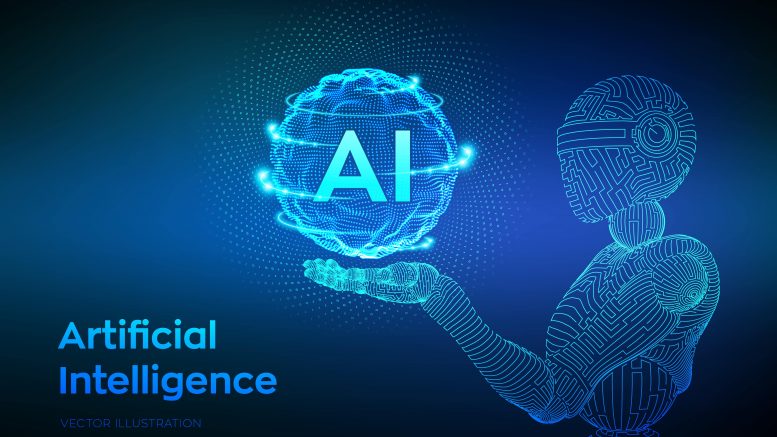Artificial Intelligence (AI) is reshaping the world, and India is gearing up to play a major role in this transformation. With a vast talent pool, expanding digital infrastructure, and proactive government policies, India has set ambitious goals for AI across various sectors by 2025. This guide breaks down India’s strategic plans, key focus areas, challenges, and opportunities as the nation embraces the AI revolution.
1. India’s Strategic Approach to AI
Government Initiatives
India’s leadership recognizes AI as a catalyst for economic growth and social progress. Programs such as NITI Aayog’s “National Strategy for Artificial Intelligence” provide a clear vision and roadmap for AI adoption. These initiatives aim to:
- Accelerate economic development
- Improve public services
- Enhance overall quality of life
Focus on Ethics and Safety
As AI becomes more integrated into everyday life, ethical considerations are taking center stage. India is committed to:
- Ensuring responsible AI development
- Tackling issues like bias, privacy, and security
- Establishing standards that protect citizens while promoting innovation
Building a Robust AI Ecosystem
For India to succeed in its AI journey, collaboration is essential. Efforts are underway to:
- Connect academia, industry, and government
- Drive innovation and nurture talent
- Create an environment where AI solutions can thrive
2. Key Sectors Driving AI Adoption
Agriculture
AI has the potential to transform Indian agriculture by enabling:
- Precision farming and crop monitoring
- Yield prediction and automated irrigation
- More efficient resource management, leading to increased productivity and better incomes for farmers
Healthcare
In the healthcare sector, AI is set to revolutionize:
- Diagnostics and personalized medicine
- Drug discovery and development
- Remote healthcare services, making quality care more accessible and affordable
Education
AI can enhance education by:
- Personalizing learning experiences for students
- Automating administrative tasks to improve efficiency
- Providing intelligent tutoring systems that cater to individual needs
Smart Cities
For urban areas, AI contributes to:
- Intelligent transportation systems
- Efficient energy management
- Enhanced public safety through smart monitoring and quick response systems
Financial Services
The financial industry is already reaping AI benefits in:
- Fraud detection and risk management
- Customer service enhancements
- Personalized financial advice, with the potential for further growth
3. Building Blocks for India’s AI Vision
Data Availability and Quality
AI relies heavily on quality data. India is focusing on:
- Enhancing data collection, storage, and sharing practices
- Protecting data privacy and security to build public trust
AI Talent Pool
While India has a strong base of IT professionals, there is a growing need for specialized AI skills. The country is investing in:
- Advanced education and training programs
- Research initiatives to cultivate a skilled AI workforce
Compute Infrastructure
Powerful computing resources are essential for developing AI. Plans include:
- Strengthening cloud infrastructure
- Investing in high-performance computing to support large-scale AI projects
Investment and Funding
Attracting both domestic and international investment is crucial. Efforts are being made to:
- Boost funding for AI research and startups
- Build the infrastructure necessary for sustained innovation
4. Challenges and Opportunities
Challenges
As India advances its AI capabilities, several hurdles need to be addressed:
- Digital Divide: Ensuring all citizens have access to technology and digital literacy.
- Data Privacy: Safeguarding personal data in an increasingly digital world.
- Ethical Considerations: Creating robust guidelines for responsible AI development.
- Job Displacement: Managing workforce transitions and offering retraining programs to mitigate the impact of automation.
Opportunities
Despite these challenges, AI presents significant benefits:
- Economic Growth: AI could substantially boost India’s GDP and open new economic avenues.
- Social Impact: Innovative AI solutions can improve healthcare, education, and agriculture.
- Global Leadership: With the right investments, India can emerge as a leader in AI innovation and adoption on the world stage.
5. The Path Forward
For India to fully realize its AI vision by 2025, a focused strategy is essential. Key steps include:
- Strengthening the Ecosystem: Foster stronger collaborations among government bodies, academia, and industry.
- Investing in Education and Research: Build a future-ready workforce by investing in AI education and continuous research.
- Enhancing Data Practices: Improve data collection and sharing while ensuring robust privacy safeguards.
- Establishing Ethical Guidelines: Develop clear, enforceable ethical standards for AI deployment.
- Promoting Sector-Wide Adoption: Encourage the integration of AI solutions across agriculture, healthcare, education, urban development, and financial services.
Conclusion
India’s AI vision for 2025 is bold and transformative. By focusing on strategic initiatives, building a solid AI ecosystem, and navigating challenges head-on, India is set to harness the power of AI for economic and social advancement. The coming years will be pivotal in shaping the nation’s AI landscape, positioning India not only as a beneficiary of technological change but as a global leader in the AI revolution.
Stay tuned as we continue to follow India’s exciting journey into the future of Artificial Intelligence.

